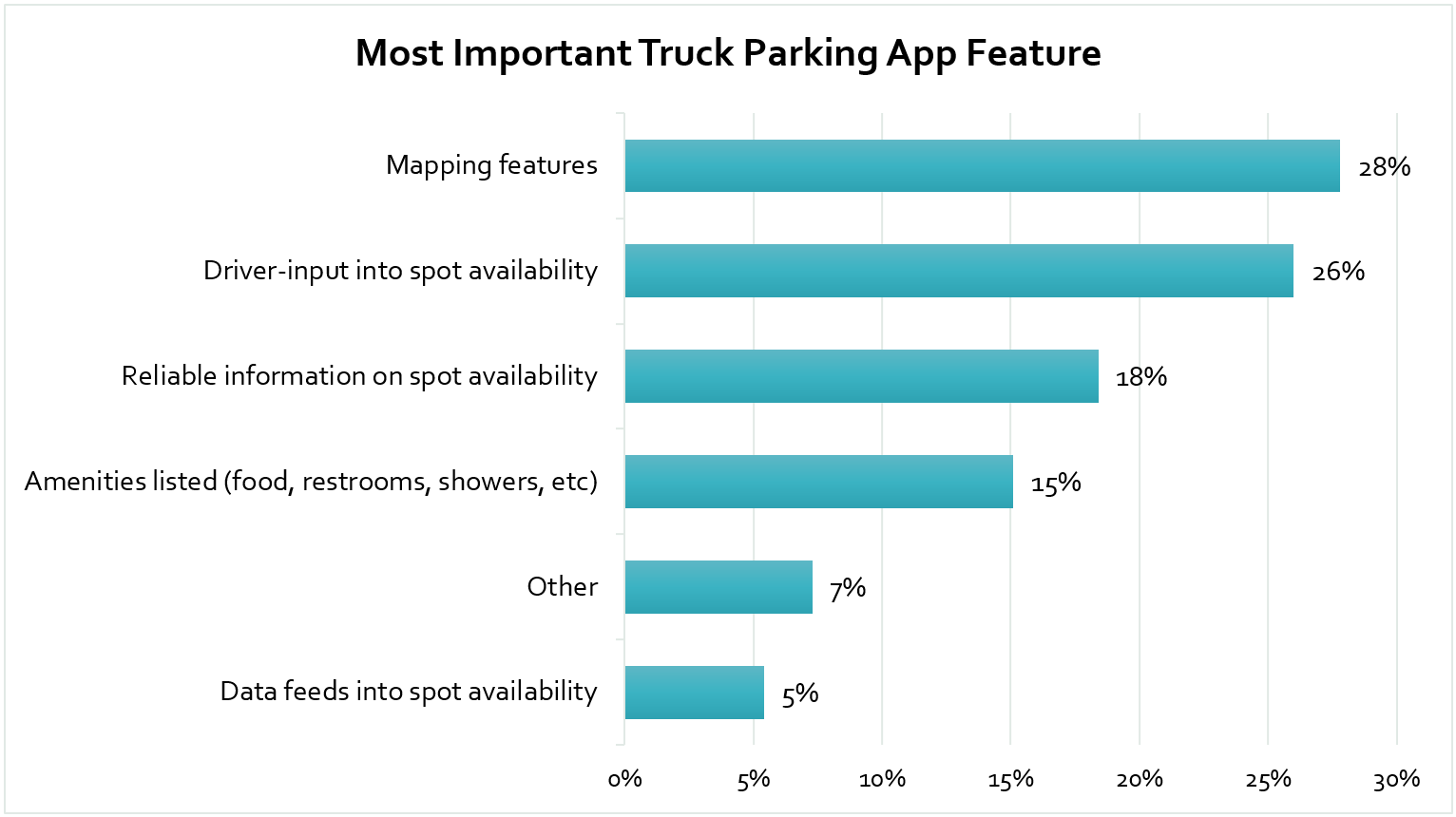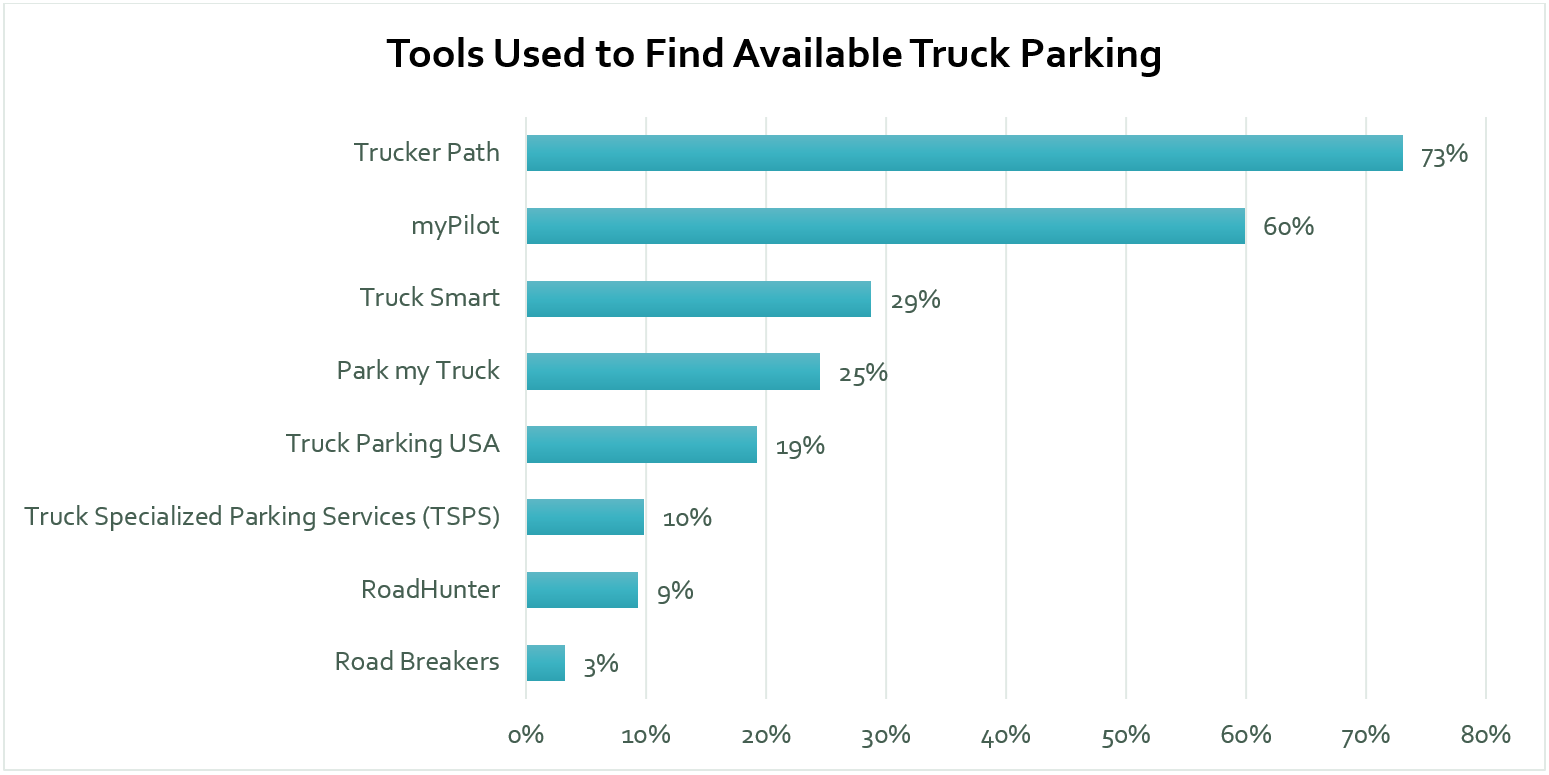National Coalition on Truck Parking: Technology and Data Working Group - Truck Parking App Survey Results
Printable Version [PDF 74KB]
You may need the Adobe® Reader® to view the PDFs on this page.
Contact Information: Freight Feedback at FreightFeedback@dot.gov

U.S. Department of Transportation
Federal Highway Administration
Office of Operations
1200 New Jersey Avenue, SE
Washington, DC 20590

The National Coalition on Truck Parking – Technology and Data Working group conducted a desk scan of the tools and resources most often used by truck drivers to locate available truck parking. The American Transportation Research Institute (ATRI) provided the most recent information available.
ARTI conducted a truck driver survey at the Mid America Trucking Show in Louisville, Kentucky in 2018. A total of 331 responses were received. The survey results indicate that drivers consider mapping features and driver-input into spot availability to be the most important truck parking app features. Drivers overwhelmingly use the Trucker Path and myPilot apps to find parking. Drivers prefer their apps to be reliable and accurate, and would like to see more accuracy in the apps they use.
What is the Most Important Truck Parking App Feature? (Check up to 3)

Figure 1: Most important parking app feature
What Three Tools Do You Use to Find Available Parking? (Check up to 3)

Figure 2: Tools most used to find available truck parking.
What Do You Like Most and Least About Your Preferred Truck Parking Apps?
| Best Features | Worst Features |
|---|---|
| Reliability/accuracy | Accuracy |
| Ease of use | Not knowing exact number of spaces available |
| Not knowing whether available parking is paid or free |
What is a Feature That You Would Like to See That Many Apps Do Not Have?
- Making data more reliable
- Identifying parking as free or paid
- Providing exact counts on available parking
The examples in this report show innovative solutions for truck parking applied in a range of situations. Suitability in other locations will depend on applicable Federal laws, State standards, and site-specific considerations. This document is disseminated under the sponsorship of the U.S. Department of Transportation in the interest of information exchange. The U.S. Government assumes no liability for the use of the information contained in this document. This report does not constitute a standard, specification, or regulation. It does not create any requirements other than those stipulated in statute or regulation. The U.S. Government does not endorse products or manufacturers. Trademarks or manufacturers' names appear in this report only because they are considered essential to the objective of the document. They are included for informational purposes only and are not intended to reflect a preference, approval, or endorsement of any one product or entity.